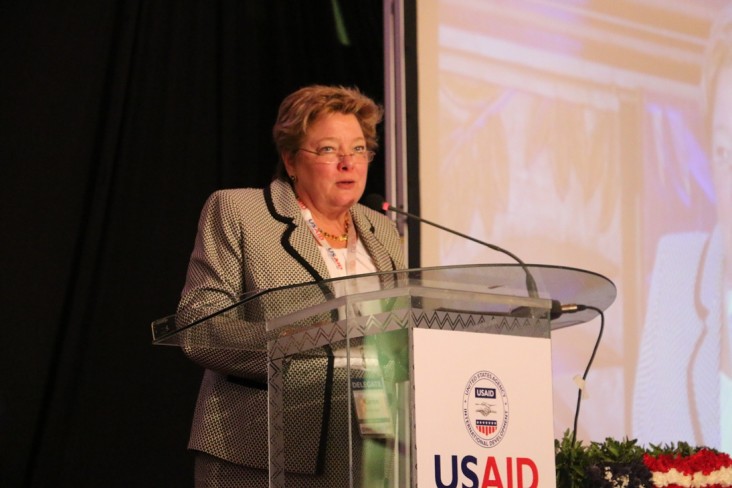
For generations, the United States has been a leader in providing development assistance to alleviate suffering in Kenya and across the globe. But food price spikes and resulting instability in 2007 and 2008 were a wake-up call: More needed to be done to break the vicious cycle of hunger and poverty. Our answer was to unlock the potential of agriculture as the key to reducing hunger, extreme poverty and malnutrition through an initiative that became Feed the Future.
In just a few short years, Feed the Future is already changing the face of hunger and poverty for Kenya, thanks in large part to the integration of hundreds of thousands of small holder farmers into the increasingly profitable horticulture sector.
Agriculture is the backbone of Kenya’s economy and central to the Government of Kenya’s development agenda. Kenya’s agriculture sector accounts for more than half of the country’s GDP and employs more than 75 percent of the workforce, both directly and indirectly. With a growing population and erratic climatic conditions, it is not hard to see the importance of increasing both the productivity and production of Kenya’s crops and developing the markets in which to sell them.
Horticulture represents the largest crop category by volume in Kenya, followed by sugar crops and cereals. One third of all the roses sold in Europe come from Kenya. Fruit and vegetable exports have grown at a consistent pace for the last 15 years, with 80 percent directed into Europe. Alternative markets are developing within Africa, across the Gulf States and Asia, in Australia, and the prospect of direct flights to the US in the near future opens up new opportunities.
Today we have gathered to discuss the findings of a Global Competitiveness Study commissioned by the U.S. Agency for International Development (USAID) in partnership with the Kenya Flower Council and the Fresh Produce and Exporters Association of Kenya (FPEAK) to benchmark Kenya’s horticulture sector for the purpose of enhancing export competitiveness in the coming years. In just a few minutes, you will have the opportunity to engage with expert from the region and from the industry to discuss in panels international market dynamics, global and regional perspectives, and formulate action plans for the industry. The participation of such a broad cross-section of leaders from the agriculture industry at today’s event is testimony to the importance of the horticulture sector and is also testimony to a shared commitment to addressing the key challenges that lie ahead.
USAID’s Kenya Horticulture Competitiveness Project has been an effective catalyst for the horticulture industry over the last five years. More than 230,000 smallholder farmers in 22 counties have benefitted through improved market linkages and farm productivity leading to increased household incomes, food security, and nutrition. Training in standards and farm-level compliance, crop diversification, scaling up new technology for good agricultural practices, and trade promotion in both regional and international markets have been the means to ensuring that small holder farmers can earn more money by producing for the export market.
While the Horticulture Competitiveness Program is coming to an end, USAID continues to support Kenyans all along the horticulture value chain through our Kenya Agriculture Value Chain Enterprises activity, an Innovation Engine that is providing grants to Kenyans with exciting private sector solutions to improve agricultural productivity, our Financial Inclusion for Rural Microenterprises activity, which helps Kenya’s commercial banks and microfinance institutions develop loan products tailored to the needs of Kenya’s small holder farmers, and our East Africa Trade and Investment Hub. We also work closely with the Tegemeo Institute at Egerton University for policy research and with the Kenyan Agriculture and Livestock Research Organization, KALRO.
I urge you to seize the opportunity today to engage with our industry colleagues, to build on the results of the USAID Kenya Horticulture Competitiveness Program in general, and to use the findings of the Global Competitiveness Study specifically, to define and implement a strategic action plan to reposition the industry over the next five years in order to strengthen inclusive economic growth in Kenya.
Asenteni sana. Thank you.
Related Speeches
- 6th Mara Day Celebration - Remarks by Brad Arsenault, Deputy Director for East Africa and Operations, Environment Office, USAID Kenya and East Africa
- Signing of a Memorandum of Understanding between Power Africa and the Nile Basin Initiative - Remarks by USAID Kenya and East Africa Deputy Mission Director Dr. Tina Dooley-Jones







Comment
Make a general inquiry or suggest an improvement.